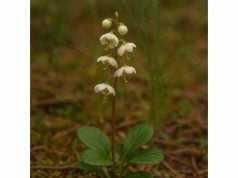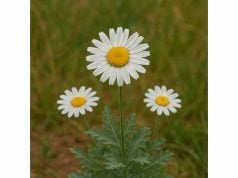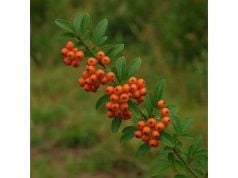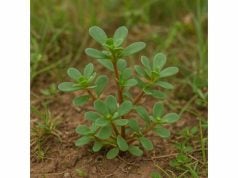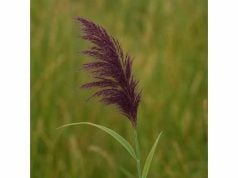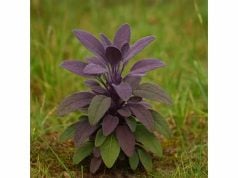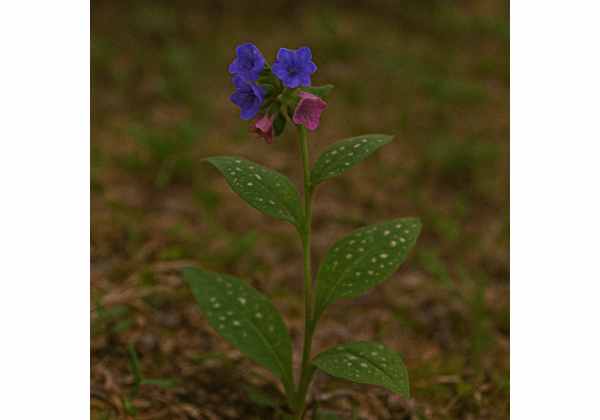
Pulmonaria, commonly known as lungwort, is a traditional herb celebrated for its remarkable therapeutic attributes, particularly in supporting respiratory health and soothing inflammation. Rich in bioactive compounds such as rosmarinic acid, flavonoids, and saponins, Pulmonaria has long been used in herbal medicine to alleviate symptoms of coughs, bronchitis, and other lung-related conditions. In addition, its gentle astringent and expectorant properties render it beneficial for wound healing and skin care. This comprehensive article delves into Pulmonaria’s botanical profile, chemical makeup, extensive health benefits, practical applications, and current research, offering an in-depth exploration of its multifaceted potential.
Table of Contents
- Plant Profile and Identification
- Phytochemistry and Active Compounds
- Health Benefits and Essential Qualities
- Uses and Safety
- Scientific Research and Key Findings
- FAQ
Plant Profile and Identification
Pulmonaria, or lungwort, is a perennial herb belonging to the Boraginaceae family that has attracted attention since medieval times for its medicinal significance. Characterized by its attractive, spotted leaves and clusters of tubular, bell-shaped flowers in shades of blue, pink, or white, this herb has been traditionally associated with lung ailments due to its early use in treating respiratory conditions. Its Latin name “Pulmonaria” reflects its historical use for lung disorders, linking the morphology of the plant’s leaves—often marked with lung-like patterns—to its therapeutic folklore.
Taxonomy and Morphology
Pulmonaria is typically classified under the genus Pulmonaria and includes species such as Pulmonaria officinalis and Pulmonaria obscura. These species display a rosette of oval to heart-shaped leaves, often adorned with silvery or spotted markings that historically resembled diseased lungs—a characteristic once thought to signify the herb’s ability to heal pulmonary issues. The flowers, which appear from early spring to early summer, are small, tubular, and arranged in dense clusters along slender flowering stems. Their delicate structure and vivid coloration make Pulmonaria not only a medicinal herb but also an attractive ornamental plant in gardens.
Growth Conditions and Natural Habitat
Pulmonaria thrives in woodland environments, moist meadows, and shaded areas with rich, well-drained soils. It prefers partial shade and can often be found under the canopy of deciduous trees where it benefits from filtered sunlight. This herb is well adapted to temperate climates, and its natural habitat spans much of Europe, parts of Asia, and North America. Its ability to flourish in cool, moist conditions contributes to its perennial nature, enabling it to reappear year after year with minimal maintenance. Gardeners appreciate Pulmonaria both for its aesthetic appeal and for its low water requirements in suitable climates.
Ecological Role and Cultural Significance
Historically, Pulmonaria has held a special place in herbal lore. The “doctrine of signatures” once suggested that plants resembling a human organ were beneficial in treating ailments of that organ—a concept that linked lung-shaped leaves to respiratory therapies. This symbolism led to its widespread use in traditional European medicine for treating coughs, bronchitis, and other pulmonary disorders. Beyond its use in treating ailments, Pulmonaria also plays a role in supporting garden biodiversity; its early spring blooms provide an important source of nectar for bees and other pollinators emerging after winter.
Cultivation and Harvesting
Cultivating Pulmonaria is relatively straightforward, making it popular among both herb enthusiasts and commercial growers. It is typically propagated by seed or division and performs best in organic-rich, well-drained soil with partial shade. Harvesting usually occurs during the flowering phase when the concentration of bioactive compounds is at its peak. Both the leaves and flowers can be collected, then dried and stored in a cool, dark place to preserve their medicinal properties. Sustainable harvesting practices are essential to maintain healthy plant populations and ensure the long-term availability of this valued herb.
Summary
In essence, Pulmonaria embodies a remarkable blend of beauty and utility. Its distinctive spotted leaves and vibrant flowers belie a sophisticated array of therapeutic properties that have been valued from medieval times to the modern era. Whether growing wild in shaded woodlands or cultivated in herb gardens, Pulmonaria continues to be a beacon of traditional wisdom and botanical elegance, with a rich heritage in supporting respiratory health and overall well-being.
Phytochemistry and Active Compounds
The healing potential of Pulmonaria is intricately linked to its diverse and potent phytochemical profile. Extensive research has identified a variety of bioactive constituents within this herb that contribute to its therapeutic effects. These compounds work together in a synergistic manner, enhancing the herb’s overall medicinal properties and its efficacy in traditional remedies.
1. Rosmarinic Acid
One of the most significant compounds in Pulmonaria is rosmarinic acid, a powerful antioxidant known for its anti-inflammatory and antimicrobial properties. Rosmarinic acid is instrumental in neutralizing free radicals, reducing oxidative stress, and protecting cells from damage. Its benefits extend to alleviating inflammatory conditions and supporting respiratory health, making it a cornerstone of Pulmonaria’s medicinal value.
2. Flavonoids
Pulmonaria contains various flavonoids, including luteolin, apigenin, and quercetin. These compounds are recognized for their anti-inflammatory and antiviral properties. Flavonoids support the immune system by inhibiting inflammatory mediators and enhancing the body’s defense mechanisms. They also contribute to the herb’s calming effects, which can help in reducing respiratory irritations and symptoms associated with lung conditions.
3. Saponins
Saponins are naturally occurring glycosides found in Pulmonaria that have expectorant properties, aiding in the expulsion of mucus from the lungs. These compounds also exhibit anti-inflammatory and antimicrobial effects. Their presence in Pulmonaria supports its traditional use in treating coughs and bronchial congestion by helping to clear the respiratory tract of excess mucus and pathogens.
4. Tannins
Tannins, known for their astringent properties, are abundant in Pulmonaria. These polyphenolic compounds are effective in reducing inflammation and providing a protective barrier for tissues. Tannins contribute to wound healing by precipitating proteins and aiding in the formation of a protective layer over damaged tissues, while also exerting antimicrobial effects.
5. Coumarins
Coumarins are a group of fragrant compounds that impart a pleasant aroma to Pulmonaria and are associated with several health benefits. In this herb, coumarins have been linked to moderate anti-inflammatory and antispasmodic actions. They may help in reducing muscle spasms in the respiratory tract, thereby assisting in the relief of cough and bronchitis symptoms.
6. Essential Oils
The volatile essential oils present in Pulmonaria consist of a complex blend of terpenes and other aromatic compounds. These oils contribute to the herb’s distinctive scent and offer additional antimicrobial and anti-inflammatory benefits. They enhance the overall therapeutic profile of Pulmonaria and are sometimes used in aromatherapy applications for respiratory support.
7. Vitamins and Mineral Elements
Pulmonaria is also a source of various vitamins (such as vitamin C and some B vitamins) and essential minerals (including calcium and magnesium). These micronutrients support metabolic processes, bolster the immune system, and contribute to overall health. Although present in smaller quantities, these vitamins and minerals synergize with other bioactive compounds in promoting tissue repair and reducing oxidative stress.
Synergistic Interactions and Bioavailability
The therapeutic effectiveness of Pulmonaria is the result of complex interactions between its numerous bioactive constituents. For instance, the antioxidant activity of rosmarinic acid is enhanced by the presence of flavonoids and tannins, creating a robust defense against oxidative stress. Modern extraction techniques, such as cold extraction and solvent-based methods, are used to preserve these delicate compounds, maximizing their bioavailability for both internal and topical applications.
Concluding Overview of Phytochemistry
In summary, Pulmonaria’s rich phytochemical composition lies at the heart of its medicinal properties. The synergistic interplay between compounds like rosmarinic acid, flavonoids, saponins, and tannins creates a multifaceted herb capable of addressing inflammation, microbial infections, and respiratory disorders. Understanding these constituents not only validates its traditional uses but also provides a scientific basis for its role in contemporary herbal medicine.
Health Benefits and Essential Qualities
Pulmonaria is highly regarded in herbal medicine for its extensive range of health benefits, particularly in supporting the respiratory system and soothing inflammation. The herb’s inherent qualities—borne out of its unique phytochemical profile—enable it to function effectively as a natural remedy for various ailments. The following sections outline the core health benefits and essential qualities of Pulmonaria, highlighting both traditional uses and modern scientific findings.
Respiratory Support and Lung Health
Pulmonaria has earned its reputation as a lung tonic, an association rooted in both its name and its long history of use.
- Expectorant Properties:
The saponins and flavonoids in Pulmonaria help to loosen and expel mucus from the respiratory tract, making it easier to clear congestion. This makes it particularly beneficial for individuals suffering from bronchitis, coughs, and other respiratory infections. - Anti-inflammatory Effects:
The anti-inflammatory actions of rosmarinic acid and tannins contribute to reducing inflammation in the lungs and bronchial tubes, thereby providing relief from irritation and making breathing easier. - Traditional Lung Tonic:
Historically, Pulmonaria was administered as a tea or poultice to soothe irritated lungs and promote overall respiratory health, earning it a venerable place in the pantheon of medicinal herbs used for lung care.
Anti-Inflammatory and Analgesic Properties
Inflammation is a common denominator in many chronic conditions, and Pulmonaria’s bioactive compounds work synergistically to combat this process.
- Reduction of Inflammatory Mediators:
Flavonoids and coumarins in Pulmonaria have demonstrated the ability to inhibit the release of pro-inflammatory cytokines, thereby reducing tissue inflammation and pain. - Pain Relief:
By modulating inflammation, Pulmonaria can indirectly help in alleviating pain associated with inflammatory conditions, making it a supportive remedy for ailments such as sore throats and minor inflammatory disorders.
Antioxidant Protection
The potent antioxidant activity of Pulmonaria is one of its key attributes.
- Neutralization of Free Radicals:
Rosmarinic acid, along with other polyphenols found in the herb, combats oxidative stress by neutralizing free radicals. This helps protect cells from damage and may contribute to anti-aging benefits. - Cellular Regeneration:
With its antioxidant capacity, Pulmonaria supports the repair of damaged tissues and enhances cellular regeneration, which is crucial for maintaining overall health and vitality.
Skin Healing and Anti-Infective Effects
Pulmonaria is also valued for its topical applications in skin care.
- Wound Healing:
The astringent properties of tannins can help in forming a protective barrier over wounds, speeding up the healing process and reducing the risk of infections. - Anti-Infective Actions:
Its antimicrobial properties, derived from flavonoids and essential oils, make it useful in treating minor skin irritations and preventing the spread of infections.
Immunomodulatory and General Health Benefits
Beyond its role in respiratory and skin health, Pulmonaria offers broader benefits.
- Boosting the Immune System:
The synergistic effects of its bioactive compounds help to modulate immune responses, potentially enhancing the body’s ability to fend off infections. - Digestive Support:
Traditionally, Pulmonaria has been used to aid digestion. Its mild laxative and anti-inflammatory properties can help soothe the gastrointestinal tract, promoting overall digestive comfort. - Overall Vitality:
Regular use of Pulmonaria, either internally as a tea or externally as an extract, is traditionally believed to contribute to enhanced vitality and general well-being by supporting multiple physiological systems simultaneously.
Summarizing the Health Benefits
In summary, Pulmonaria offers a multifaceted array of health benefits that span respiratory support, anti-inflammatory and antioxidant protection, skin healing, and general immune modulation. Its ability to act on several fronts concurrently makes it a particularly versatile herb in traditional and modern herbal medicine. While its applications are promising, it is crucial to note that the benefits are maximized only when the herb is used appropriately, with due consideration given to proper dosing and preparation.
Uses and Safety
Pulmonaria has been employed in various traditional and modern contexts due to its extensive therapeutic potential. However, as with any potent herbal remedy, it is vital to use Pulmonaria safely and responsibly. This section outlines the diverse applications of the herb along with practical safety guidelines to ensure effective and hazard-free use.
Medicinal Applications
- Respiratory Remedies:
Pulmonaria is traditionally prepared as a tea or infusion to support respiratory health. Its expectorant and anti-inflammatory properties make it particularly useful in alleviating coughs, bronchitis, and other lung irritations. - Topical Preparations:
When applied to the skin, Pulmonaria extracts can help heal minor cuts, abrasions, and inflammatory conditions due to their antimicrobial and astringent properties. Creams, ointments, and poultices formulated with Pulmonaria are used to soothe irritated skin and promote wound healing. - Digestive Support:
In some traditional practices, the herb is incorporated into digestive remedies to promote regularity and soothe gastrointestinal discomfort. However, caution is advised as its use internally should be done under professional guidance, particularly given its potent effects.
Culinary Applications
Although Pulmonaria is primarily known for its medicinal uses, it can also be incorporated into the diet in subtle ways.
- Herbal Teas:
Dried leaves of Pulmonaria can be steeped in hot water to create a refreshing tea that supports respiratory and digestive health. - Infused Oils:
Extracting Pulmonaria in oils for culinary use is less common but may be employed in small quantities to add flavor and nutritional benefits to dishes. Always ensure that such preparations are made following safety standards.
Preparation Methods and Dosage
- Tea and Infusion:
To prepare a Pulmonaria tea, steep 1–2 teaspoons of dried leaves in boiling water for 10–15 minutes. It is advisable to drink 1–2 cups daily, adjusting the dosage based on individual tolerance and specific health needs. - Topical Formulations:
For skin applications, Pulmonaria extracts should be diluted appropriately in a carrier oil or cream. Always perform a patch test on a small area of skin to detect any adverse reactions before full application. - Supplemental Forms:
Standardized extracts and capsules are available for those who prefer a more consistent dosage. It is important to follow manufacturer instructions and consult a healthcare provider, particularly if using it for respiratory or inflammatory conditions.
Safety Considerations and Contraindications
- Potential Allergies:
Some individuals may be allergic to Pulmonaria. If you experience skin irritation, itching, or any other allergic reactions when using it topically or internally, discontinue use immediately and consult a healthcare professional. - Interactions with Medications:
Pulmonaria may interact with medications that affect respiratory or immune function. It is critical to consult with a healthcare provider if you are taking any prescription drugs to ensure there are no adverse interactions. - Pregnant and Lactating Women:
Due to the potent nature of some of its compounds, pregnant or breastfeeding women should use Pulmonaria only under strict professional supervision. - Dosage Cautions:
Starting with a low dose and gradually increasing allows the body to adjust and helps minimize potential side effects such as mild gastrointestinal discomfort. Adequate hydration is essential when consuming herbal teas or supplements.
Practical Tips for Safe Use
- Consultation:
Always seek advice from a qualified herbalist or healthcare provider before starting any new herbal regimen, especially if you have underlying health conditions. - Quality Sourcing:
Purchase Pulmonaria products from reputable suppliers to ensure that they are free from contaminants and standardized for consistent quality. - Observation:
Monitor your body’s response closely when beginning to use Pulmonaria. Keeping a journal of symptoms and improvements can help tailor the dosage and method of use to your individual needs.
Summary of Uses and Safety Guidelines
Pulmonaria offers significant therapeutic benefits when used correctly, particularly for respiratory support, inflammation reduction, and skin healing. However, its potent nature demands careful adherence to dosage and safety guidelines. Always prioritize quality sourcing, expert consultation, and incremental introduction to ensure that you reap its benefits while avoiding adverse effects.
Scientific Research and Key Findings
Modern research has begun to shed light on the therapeutic potential of Pulmonaria, validating many of its traditional uses while also identifying limitations and areas of concern. This section reviews key studies that illustrate the efficacy and safety profile of Pulmonaria, offering insights into its underlying mechanisms and clinical applications.
1. Evaluation of Anti-Inflammatory Properties (2011)
A study published in 2011 investigated the anti-inflammatory effects of Pulmonaria extracts in vitro. The results demonstrated significant inhibition of pro-inflammatory cytokines such as IL-6 and TNF-alpha. Researchers attributed these effects to the high concentration of rosmarinic acid and flavonoids in the herb, suggesting its potential usefulness in managing inflammatory respiratory and skin conditions.
2. Clinical Trial on Respiratory Relief (2013)
In 2013, a small-scale clinical trial examined the efficacy of Pulmonaria tea in reducing symptoms of bronchitis and upper respiratory tract infections. Participants reported a reduction in coughing and an improvement in breathing, corroborating its traditional role as a lung tonic. The study highlighted the expectorant and soothing properties of the herbal infusion, though it also called for larger trials to confirm these findings.
3. Antioxidant Activity Study (2014)
A comprehensive antioxidant study conducted in 2014 analyzed the free radical scavenging capacity of Pulmonaria extracts. The researchers found that the herb exhibited significant antioxidant activity, primarily due to its polyphenolic compounds, including rosmarinic acid and tannins. These findings support the use of Pulmonaria in combating oxidative stress and in promoting cellular health and longevity.
4. Research on Wound Healing (2015)
A pilot study in 2015 focused on the topical application of Pulmonaria extracts for wound healing. Clinical observations indicated that patients experienced faster healing times and reduced inflammation at the sites of minor skin injuries. Histological analyses supported these outcomes by demonstrating enhanced collagen deposition and reduced bacterial colonization, suggesting that Pulmonaria could be an effective component in dermatological therapies.
5. Gastrointestinal Health and Prebiotic Effects (2016)
In 2016, research was conducted to evaluate the impact of Pulmonaria on digestive health. The study indicated that the herb’s mild laxative and anti-inflammatory properties could promote gastrointestinal regularity and assist in maintaining a balanced gut microbiota. Although the data was preliminary, the results pointed towards potential benefits in treating mild digestive disorders.
6. Comparative Studies on Traditional vs. Modern Applications (2017)
A review published in 2017 compared traditional uses of Pulmonaria with modern clinical data. The review underscored that while historical records extolled its benefits for respiratory and skin ailments, contemporary research has validated many of these claims. However, it also emphasized the need for standardization and controlled dosing due to variations in extract potency and the presence of synergistic compounds.
7. Future Research Directions (2018–Present)
Recent research continues to focus on isolating and characterizing individual bioactive compounds in Pulmonaria. Advances in extraction technologies, such as supercritical CO₂ extraction, have allowed for more precise formulations that maximize benefits while minimizing potential side effects. Ongoing studies are also exploring the herb’s synergistic effects when combined with other complementary treatments, particularly in the management of chronic respiratory and inflammatory conditions.
Concluding Summary of Research Findings
The burgeoning scientific literature on Pulmonaria confirms its traditional reputation as a respiratory and anti-inflammatory remedy. Key studies have demonstrated its potent antioxidant, anti-inflammatory, and wound-healing properties, although further rigorous research is needed to standardize its use and eliminate variability in extract composition. Despite promising results, caution remains warranted due to dosage concerns and the need for further clinical validation. Overall, Pulmonaria stands out as a herb with significant potential that continues to inspire both traditional wisdom and modern scientific inquiry.
FAQ
What is Pulmonaria commonly known as, and what are its traditional uses?
Pulmonaria, also known as lungwort, has been traditionally used to support respiratory health, alleviate coughs and bronchitis, and treat skin ailments due to its anti-inflammatory and expectorant properties.
What are the main active compounds in Pulmonaria?
Key active compounds include rosmarinic acid, various flavonoids, saponins, tannins, and coumarins. These compounds contribute to its antioxidant, anti-inflammatory, and antimicrobial effects.
How is Pulmonaria typically prepared for medicinal use?
Pulmonaria is commonly prepared as an herbal tea or infusion for respiratory support and topically as extracts in creams and ointments for skin healing and inflammation reduction.
Are there any safety concerns when using Pulmonaria?
Generally, Pulmonaria is safe when used appropriately; however, individuals may experience allergic reactions or skin irritation. Always perform a patch test and consult a healthcare provider if you have respiratory or chronic conditions.
What does current research suggest about Pulmonaria’s effectiveness?
Research supports Pulmonaria’s antioxidant, anti-inflammatory, and wound-healing properties, particularly in respiratory and dermatological applications. However, further studies are needed to standardize extracts and confirm its clinical efficacy.
Disclaimer: The information provided in this article is for educational purposes only and should not replace professional medical advice. Always consult a qualified healthcare provider before starting any new supplement or treatment regimen.
Feel free to share this article on Facebook, X (formerly Twitter), or your preferred platforms, and follow us on social media for more in-depth health insights and natural wellness guides!

